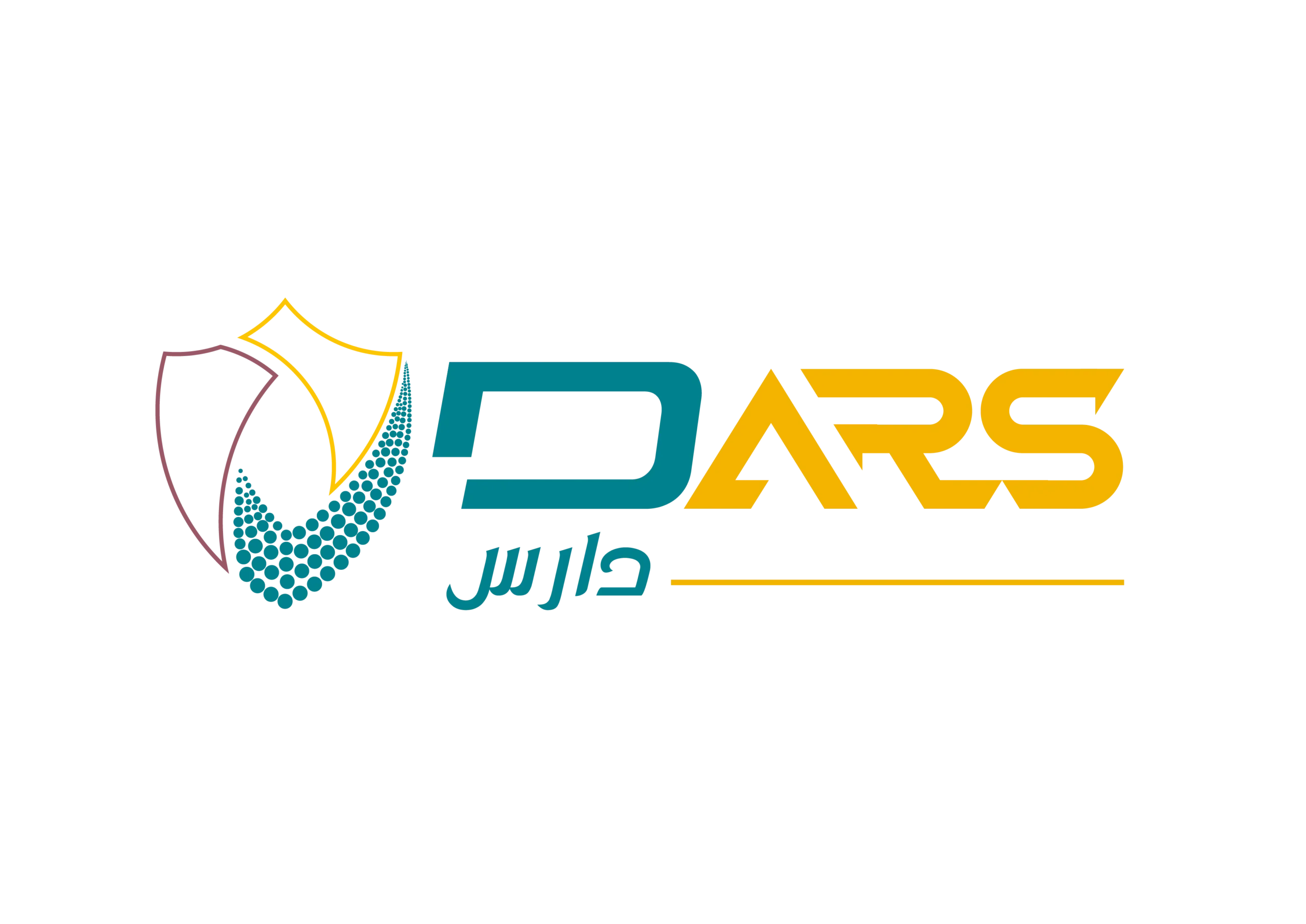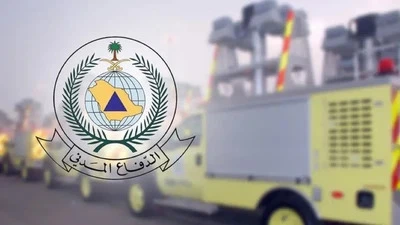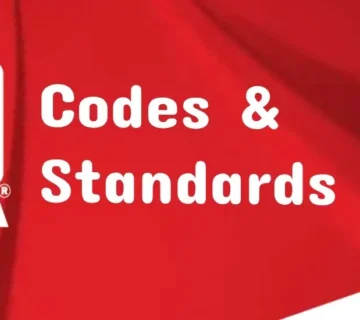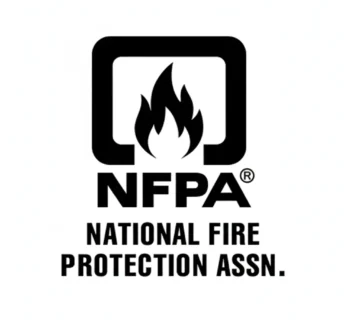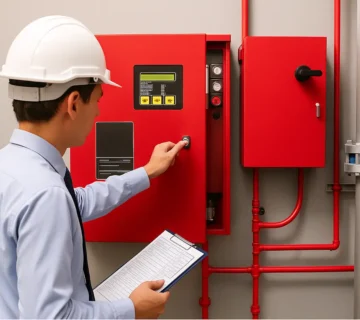
What is Civil Defense and Why It Matters
Civil Defense in Saudi Arabia plays a pivotal role in safeguarding lives, property, and national infrastructure. It is not simply a regulatory authority but also a framework that ensures communities, businesses, and industries are prepared to manage fire hazards, disasters, and emergencies. By overseeing fire safety systems, monitoring building code compliance, and enforcing safety regulations, Civil Defense ensures that safety is not an afterthought but a legal and operational requirement.
The relevance of Civil Defense has grown in parallel with Saudi Arabia’s rapid urbanization and the development of giga-projects under Vision 2030. For businesses, compliance with Civil Defense standards is more than a legal formality it is a mark of credibility and responsibility. For individuals, it offers the assurance that the spaces they live, work, and gather in are equipped to protect them in case of an emergency.
What is the Role of Saudi Civil Defense in Fire Safety?
Regulatory Authority and Enforcement Responsibilities
Saudi Civil Defense serves as the central authority responsible for setting and enforcing fire and life safety standards. Its mandate extends to approving construction designs, certifying fire safety equipment, and ensuring that both public and private facilities adhere to safety management systems. By working closely with contractors, consultants, and developers, Civil Defense ensures that no building is granted occupancy without meeting fire safety standards established under the Saudi Building Code.
The authority’s enforcement role also means conducting inspections, issuing fines for violations, and even halting operations if compliance gaps pose immediate risks. These responsibilities underline the principle that fire safety is not negotiable; it is a mandatory element of sustainable growth.
Fire Equipment Approval and Certification Processes
Civil Defense is directly involved in approving and certifying fire safety equipment used across the Kingdom. From fire extinguishers to control panels, each piece must meet internationally recognized standards before being deployed. For example, a fire alarm system installed in a commercial tower cannot function legally until certified by Civil Defense.
This approval process eliminates substandard products from the market, protecting end-users and maintaining the credibility of fire protection solutions. Companies that attempt to bypass certification risk penalties, rejection of equipment, and possible closure of their projects.
Inspection and Compliance Monitoring Across Commercial and Residential Sectors
Inspections are a cornerstone of Civil Defense’s oversight. These inspections are not limited to large projects but extend to residential complexes, malls, offices, and industrial sites. Inspectors check for functional fire safety systems, accessible emergency exits, and visible signage.
For businesses, inspections can be scheduled or surprise visits. This ensures that compliance is continuous, not just during licensing periods. Regular monitoring builds a culture of responsibility, where both employees and management prioritize safety.
Public Awareness and Training Initiatives
Beyond enforcement, Civil Defense has an educational mission. The authority regularly conducts awareness campaigns, training workshops, and fire drills to instill a culture of emergency preparedness. Public events and media campaigns emphasize correct use of fire extinguishers, evacuation procedures, and the importance of early reporting in emergencies.
These initiatives highlight that while equipment is vital, human awareness and readiness are equally important. A well-trained community becomes the first line of defense against accidents escalating into disasters.
What Fire Safety Equipment and Systems Must Comply with Civil Defense Regulations?
Fire Extinguishers, Alarms, Sprinkler Systems, and Suppression Systems
Every building in Saudi Arabia, from small offices to high-rise towers, must be equipped with certified fire extinguishers and alarms. In larger or more complex structures, sprinkler systems and suppression systems are mandatory. These systems are designed to contain fires at an early stage, reducing the potential for loss of life and property damage.
Civil Defense regulations ensure that these systems are not only installed but also periodically tested and maintained. A neglected sprinkler system, for example, may pass unnoticed until it fails during a real emergency something Civil Defense’s strict checks aim to prevent.
Emergency Exits, Lighting, and Fire Doors Requirements
Emergency exits are not optional features but essential life-saving components of every building. Civil Defense requires clearly marked exits, adequate lighting, and fire-rated doors that can withstand high temperatures for a specified time.
These regulations are particularly critical in high-density facilities such as shopping malls, airports, and stadiums. In emergencies, panic can amplify risk, and properly designed exits minimize the chances of chaos leading to casualties.
Fire Pumps and Control Panels Responsibilities
Fire pumps ensure water is delivered at the necessary pressure to suppression systems. Civil Defense mandates that pumps, control panels, and related components are installed to international standards and subject to rigorous inspections.
These systems are the backbone of firefighting capability within buildings. A compliant pump system can mean the difference between containing a fire and allowing it to spread uncontrollably.
Maintenance and Inspection Requirements Mandated by Civil Defense
Compliance is not a one-time activity. Civil Defense regulations require ongoing inspection and maintenance of all fire safety equipment. Businesses must submit regular documentation proving maintenance activities, often conducted by licensed contractors such as DarAlhmaya, which specializes in implementing and maintaining fire safety systems according to Civil Defense requirements.
Failure to maintain these systems leads to penalties, invalidation of licenses, and even suspension of business operations. This ongoing requirement emphasizes that fire safety is a dynamic process, not a static certificate.
How Do Civil Defense Regulations Impact Businesses in Saudi Arabia?
For businesses operating in Saudi Arabia, Civil Defense regulations are not just bureaucratic requirements but operational necessities. Every company, from small retailers to multinational corporations, must demonstrate compliance before securing licenses or opening their doors to the public. This process can appear daunting, but it ultimately builds credibility and ensures that workplaces are safe, efficient, and prepared for emergencies.
The impact begins with the design stage of any new facility. Architectural and engineering plans must include provisions for fire safety systems such as sprinklers, alarm panels, and emergency exits, all of which must be pre-approved by Civil Defense. Failure to integrate these elements from the outset often leads to costly redesigns, project delays, or outright rejection of licenses. Businesses therefore recognize that fire safety is not an afterthought but a central component of project planning.
Fire Safety Compliance Checklist for Commercial Properties
Every commercial property in Saudi Arabia is expected to operate within a framework of compliance that spans equipment, infrastructure, and training. Civil Defense checks for functioning extinguishers, visible exit signage, regular fire drills, and comprehensive maintenance records. Unlike some regulatory frameworks where inspection can be lenient, the Saudi system emphasizes thoroughness. This approach reduces the likelihood of oversights that could endanger occupants and disrupt business continuity.
Moreover, compliance enhances corporate reputation. Many organizations highlight their Civil Defense approvals in tenders and proposals, using them as proof of reliability. In sectors such as oil and gas, manufacturing, and healthcare, Civil Defense certification can even be a prerequisite for partnerships and contracts.
Licensing and Permits Required from Civil Defense
Operating without Civil Defense approval is not possible. Every business whether a retail shop, warehouse, or industrial facility must secure permits that certify fire safety readiness. These licenses are renewed periodically, often requiring updated documentation and inspection reports.
The process is rigorous. Businesses must submit technical drawings, system specifications, and contractor details for approval. Civil Defense may also demand performance demonstrations of fire protection solutions, ensuring that equipment functions as intended. This licensing system provides businesses with a structured path toward compliance but also places responsibility on them to remain updated with evolving codes and standards.
Consequences of Non-Compliance, Fines, and Operational Impacts
Non-compliance with Civil Defense regulations can carry severe consequences. Beyond financial penalties, which can escalate depending on the severity of the violation, businesses may face operational shutdowns. In some cases, facilities are barred from use until compliance is restored. This disrupts supply chains, delays projects, and damages brand credibility.
The risk extends beyond regulatory penalties. A fire incident in a non-compliant facility can lead to loss of life, property destruction, and long-term reputational harm. Insurance companies may also refuse to honor claims if violations are proven. From this perspective, the cost of compliance is far less than the potential cost of negligence.
Role of Private Fire and Rescue Teams and Their Regulation
Civil Defense also oversees the licensing of private fire and rescue teams, particularly within high-risk industries such as petrochemicals and aviation. These teams act as the first responders within their facilities, but they must operate under the strict supervision of Civil Defense. Training, equipment standards, and reporting protocols are all monitored to ensure alignment with national safety regulations.
For businesses, investing in private fire teams demonstrates a proactive commitment to occupational health and safety. It reassures employees, partners, and regulators that the company is not merely meeting minimum requirements but exceeding them.
What Are the Latest Updates in Saudi Fire Safety Regulations in 2025?
Saudi Arabia has entered a transformative era of development, with mega and giga projects reshaping its economic and urban landscape. This rapid growth demands equally robust safety frameworks, which is why 2025 has brought significant updates to fire and life safety regulations.
Introduction of Updated Saudi Building Code (SBC) and Saudi Fire Code (SFC)
The most important development is the introduction of updated versions of the Saudi Building Code (SBC) and the Saudi Fire Code (SFC). These updates align local regulations more closely with international best practices while addressing the specific environmental and cultural context of Saudi Arabia. For example, the codes place strong emphasis on fire prevention in high-rise buildings, industrial plants, and large public facilities such as airports and stadiums.
By mandating performance-based designs, the codes allow engineers and consultants to propose innovative fire prevention strategies, provided they meet or exceed established benchmarks. This flexibility encourages innovation without compromising safety.
Impact on Mega and Giga Projects Development
Civil Defense regulations have always been critical to large-scale projects, but with the rise of giga projects such as NEOM, the Red Sea Project, and Qiddiya, compliance has taken on new levels of complexity. These developments span thousands of square kilometers and involve cutting-edge designs that push traditional construction boundaries.
Civil Defense has responded by establishing specialized units dedicated to overseeing these projects. The goal is to ensure that futuristic architecture does not come at the expense of industrial safety. Contractors and developers must work closely with Civil Defense from the earliest design stages to the final inspection, creating a collaborative but tightly regulated environment.
Role of International Consultancy Firms as Civil Defense Representatives
Given the technical complexity of modern projects, Civil Defense has begun to recognize and approve international consultancy firms as representatives in the compliance process. These firms bring global expertise in safety management systems, advanced modeling techniques, and risk analysis. Their involvement ensures that Saudi projects meet international benchmarks while remaining tailored to local conditions.
For businesses, this development is a double-edged sword. While consultancy fees add to project costs, the resulting systems are often more efficient, reliable, and future-proof. It also allows Saudi Arabia to position itself as a leader in safety innovation on the global stage.
Emphasis on Performance-Based, High-Value Fire Safety Solutions
The latest regulations prioritize performance-based designs over prescriptive ones. Instead of simply dictating what equipment to install, Civil Defense evaluates how systems perform in real-world scenarios. For example, rather than requiring a specific number of sprinklers per square meter, the authority assesses whether the chosen system can contain fire within a defined timeframe.
This shift places responsibility on contractors and consultants to deliver customized solutions. It also encourages the use of advanced technologies such as intelligent smoke detectors, IoT-enabled alarms, and integrated building management systems. For businesses, adopting these innovations not only satisfies regulators but also enhances long-term efficiency and safety.
How Can Individuals and Businesses Ensure Civil Defense Compliance?
Civil Defense compliance can appear complex, but it is manageable with a structured approach. Both individuals and organizations must view compliance not as a single step but as a continuous process that starts with design and extends through daily operations. For businesses, compliance means creating safe work environments, reducing liabilities, and gaining the trust of regulators, partners, and customers.
The journey typically begins with securing the necessary approvals. Before a building can be occupied or a business license issued, Civil Defense must certify that all required fire safety systems are in place. This involves submitting technical plans, engaging licensed contractors, and ensuring that installations meet safety regulations. Once certified, businesses must maintain these systems through regular inspections and detailed reporting, ensuring readiness at all times.
Steps to Obtain Civil Defense Approvals and Certifications
Civil Defense has outlined a series of steps that businesses must follow to secure approvals. The process begins with submitting architectural and engineering plans that highlight compliance with the Saudi Building Code. Next, certified contractors must carry out installations of equipment such as fire alarms, sprinkler systems, and emergency exits. Once completed, inspectors from Civil Defense evaluate the site and issue final certification.
For individuals seeking approval for smaller projects, the steps are less intensive but no less important. Even home-based businesses must demonstrate compliance when their operations involve public interaction. This ensures that safety is embedded into every aspect of Saudi Arabia’s growing economy.
Best Practices in Fire Safety System Installation and Maintenance
Compliance is not achieved through installation alone it requires a culture of care. Best practices include working only with licensed contractors, conducting regular risk assessments, and keeping detailed logs of maintenance activities. Businesses should also invest in third-party audits to identify gaps that might go unnoticed during routine operations.
Partnering with specialized contractors such as DarAlhmaya can streamline this process. With expertise in applying and developing systems that meet civil defense standards, businesses can ensure that their infrastructure remains compliant while minimizing disruptions to daily operations.
Documentation and Reporting Requirements
Civil Defense places strong emphasis on documentation. Businesses must maintain detailed records of inspections, equipment tests, and fire drills. In many cases, these records must be prepared in Arabic to align with national requirements. Proper documentation is not just a matter of satisfying auditors; it is a legal safeguard that demonstrates proactive compliance in case of incidents or disputes.
Reports should be updated promptly and stored securely. Increasingly, digital reporting platforms are being introduced to simplify the process, making compliance less burdensome while ensuring accuracy.
Training and Emergency Preparedness Programs
Even the most advanced fire protection solutions are ineffective if people do not know how to use them. Civil Defense therefore emphasizes training as a critical part of compliance. Businesses must organize fire drills, first-aid workshops, and awareness sessions for their employees.
Preparedness is not limited to staff it extends to residents, visitors, and contractors. A hotel, for example, must not only train its employees but also display clear evacuation instructions for guests. These efforts align with broader goals of emergency preparedness and community resilience.
What Are Common Challenges in Meeting Civil Defense Fire Regulations?
Navigating Complex Regulatory Requirements
One of the main challenges businesses face is navigating the complexity of regulatory requirements. Civil Defense codes evolve regularly, incorporating global best practices and adapting to new risks. For companies managing multiple facilities, staying updated can be overwhelming. Smaller businesses, in particular, often lack the internal expertise to interpret codes correctly.
This challenge is often addressed by working with consultants or certified contractors who specialize in compliance. By outsourcing expertise, businesses can focus on their operations while ensuring that their infrastructure remains aligned with Civil Defense standards.
Coordination Between Contractors, Consultants, and Inspectors
Civil Defense compliance is a collaborative process, involving contractors who install systems, consultants who design them, and inspectors who certify them. Miscommunication between these stakeholders can lead to delays, errors, or costly rework. For instance, if a contractor installs equipment that does not meet specifications, the project may fail inspection, requiring removal and replacement.
Clear communication and early coordination are key. Engaging all parties from the design stage ensures that everyone is aligned with expectations, reducing the risk of conflict during inspections.
Keeping Up with Technology Advancements
Technology is evolving at a rapid pace, and Civil Defense is quick to integrate innovations into its codes. IoT-enabled alarms, AI-based smoke detection, and integrated building management systems are becoming part of compliance requirements. For businesses, this creates the challenge of upgrading systems regularly to stay ahead of obsolescence.
While upgrades can be costly, they also offer opportunities. Advanced systems often reduce false alarms, improve reliability, and lower long-term maintenance expenses. In this sense, technology investments enhance both compliance and efficiency.
Educating Staff and Occupants on Fire Safety Procedures
Another common challenge is ensuring that people understand and follow safety procedures. Equipment may be in place, but if staff do not know how to respond in emergencies, compliance loses its value. For example, an office may have fire doors, but if employees block them with furniture, evacuation routes become compromised.
Regular training and awareness campaigns are therefore essential. By making fire safety part of workplace culture, businesses can ensure that compliance is not just about systems and paperwork but about real-world preparedness.
Conclusion: Civil Defense as a Pillar of Safety and Growth
Civil Defense in Saudi Arabia is more than an enforcement body it is a cornerstone of national safety and development. By ensuring compliance with safety regulations, mandating fire safety systems, and promoting a culture of preparedness, Civil Defense protects lives and strengthens the Kingdom’s economic foundation.
For businesses, proactive compliance is both a responsibility and an opportunity. It reduces risks, enhances credibility, and supports long-term growth. For individuals, it provides confidence that the spaces they occupy are built with safety in mind.
As Saudi Arabia continues to expand through giga projects and ambitious urban development, the role of Civil Defense will only grow in importance. The future of safety lies in performance-based systems, innovative technologies, and well-trained communities. Engaging with certified professionals and staying updated with regulations ensures that businesses and individuals alike contribute to a safer, more resilient nation.
